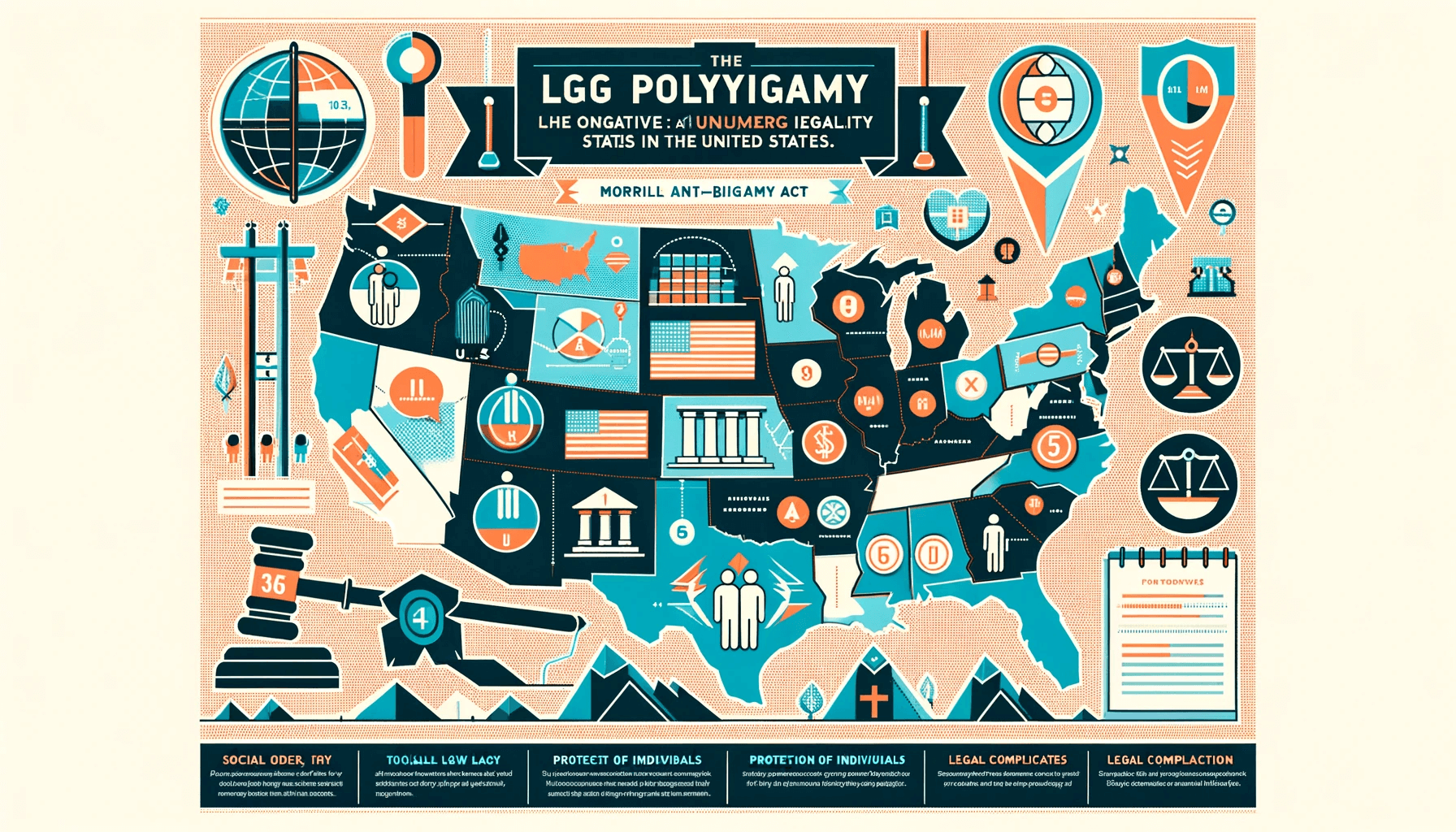Polygamy, the practice of marrying multiple spouses, is illegal across the United States. This legal stance is rooted in a mix of historical, social, and legal factors that have evolved over time. The prohibition of polygamy in the U.S. reflects broader societal norms and values, particularly regarding marriage and family structure. This article explores the legal framework surrounding the ban on polygamy, the reasons behind its illegality, and the implications of this prohibition within the U.S. legal system.
Historical Background and Legal Foundations
The legal prohibition against polygamy in the United States can be traced back to the mid-19th century, a period when the practice came under public scrutiny due to its association with certain religious groups, notably the Church of Jesus Christ of Latter-day Saints (LDS Church), commonly known as the Mormon Church.
Reynolds v. United States (1878): “In a landmark decision, the U.S. Supreme Court upheld the constitutionality of anti-polygamy legislation, asserting that the First Amendment’s freedom of religion does not include the right to engage in polygamy.”
This case set a legal precedent that allowed federal and state governments to enact laws specifically banning polygamy, despite religious practices or beliefs that might permit or encourage the practice.
Federal and State Legislation
Following the Reynolds decision, both federal and state legislatures moved to enact laws explicitly prohibiting polygamy. The Edmunds Act of 1882 and the Edmunds-Tucker Act of 1887 were significant federal laws that targeted polygamy, imposing penalties such as fines, imprisonment, and the disenfranchisement of individuals practicing polygamy.
State laws also reflect this prohibition, with statutes often defining legal marriage as a union between two individuals, thereby excluding polygamous relationships from legal recognition and protection.
Reasons for the Prohibition
The reasons behind the illegality of polygamy in the U.S. encompass a range of legal, social, and ethical considerations:
- Public Policy: The legal system supports marriage models that it deems beneficial for social order, public welfare, and the protection of individuals within family units.
- Protection of Women and Children: Critics of polygamy argue that the practice can lead to the exploitation and abuse of women and children, concerns that have been cited in legal arguments supporting the ban.
- Social Norms and Values: The prevailing social and moral values in the U.S. have historically favored monogamous relationships, viewing polygamy as incompatible with these norms.
Contemporary Debates and Legal Challenges
While polygamy remains illegal, recent years have seen legal challenges and debates surrounding the issue, particularly in the context of religious freedom and privacy rights. Some argue that consenting adults should have the right to form familial relationships as they choose, without government interference.
However, as of the latest legal precedents, polygamy continues to be prohibited, with the courts generally upholding laws against the practice on the grounds of compelling state interests in protecting marriage and family structures.
Conclusion
The prohibition of polygamy in the United States is a complex issue that intersects with legal principles, historical contexts, social norms, and ethical considerations. While rooted in 19th-century legal battles, the discussion around polygamy and its place in American society remains relevant, reflecting ongoing debates about religious freedom, individual rights, and the role of law in regulating personal relationships.
References
- Reynolds v. United States, 98 U.S. 145 (1878): https://www.oyez.org/cases/1850-1900/98us145
- Edmunds Act of 1882 and Edmunds-Tucker Act of 1887: https://www.archives.gov









Leave a Reply